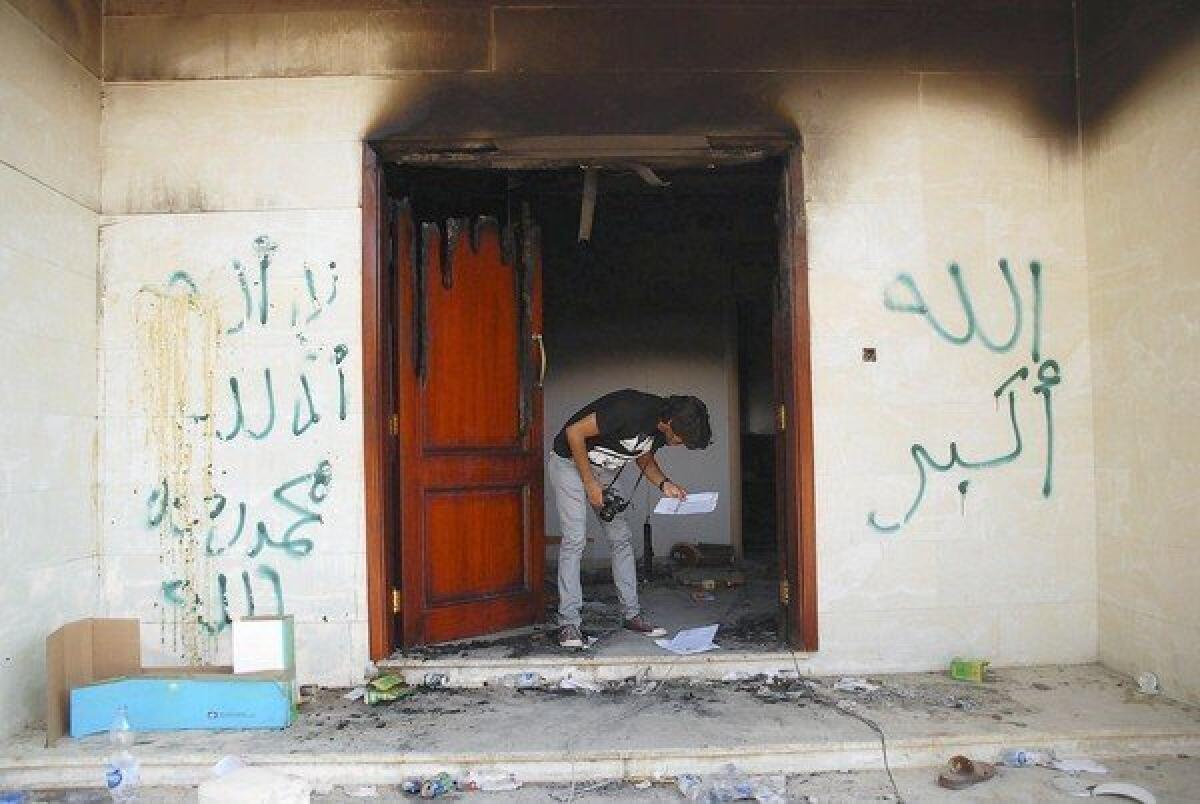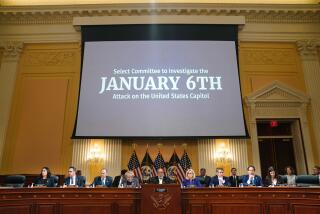4 State Department officials quit after report on Benghazi attack

WASHINGTON — Four senior State Department officials resigned under pressure Wednesday after an independent review board determined that they had operational responsibility for “grossly inadequate” security when Islamic militants killed four Americans at the U.S. diplomatic mission in Benghazi, Libya.
At a news conference, retired Adm. Michael G. Mullen, a former chairman of the Joint Chiefs of Staff and a leader of the independent panel, said “senior officials in critical positions of authority and responsibility in Washington demonstrated a lack of leadership and management ability.”
The Sept. 11 assault, which killed Ambassador J. Christopher Stevens and three other Americans, has forced a wholesale reexamination of how the U.S. government protects its diplomatic facilities and employees, especially in dangerous areas.
It has also set off a bitter struggle between the White House and Republican critics who contend the Obama administration failed to provide adequate security and sought to conceal its lapses during the presidential campaign.
The senior State Department staffers who resigned included Eric Boswell, the assistant secretary for diplomatic security; Charlene Lamb, a deputy assistant secretary responsible for embassy security; and another unnamed person in the diplomatic security bureau, officials said. Raymond Maxwell, a deputy assistant secretary who oversaw Libya, Algeria, Tunisia and Morocco in the Bureau of Near Eastern Affairs, was identified by the Associated Press as the fourth official to resign.
They were held responsible for failing to act on requests for more guards and better fortifications for the U.S. compound in Benghazi, a city overrun by armed militiamen.
The resignations were a rare step for the State Department and an indication of how seriously top officials consider the lapses, veteran U.S. diplomats said.
No senior officials were forced out, for example, after the August 1998 bombings by Al Qaeda of U.S. embassies in Dar es Salaam, Tanzania, and Nairobi, Kenya, which killed more than 200 people and injured several thousand.
Nor was anyone disciplined in the CIA after an independent review board found “systemic breakdowns” of security when an Al Qaeda suicide bomber killed seven CIA officers on their base in Khowst, Afghanistan, in December 2009.
Yet some Republican lawmakers who have focused on the Benghazi attacks insisted the resignations and corrective steps recommended by the panel were inadequate and demanded more sweeping reform.
“This shouldn’t be about just asking a few department heads politely to resign,” said Rep. Mike Rogers (R-Mich.), chairman of the House Intelligence Committee. “You better be reaching down for fundamental change.”
In its report released late Tuesday, the Accountability Review Board concluded that the State Department’s Diplomatic Security and Near East Affairs bureaus failed to coordinate security activities and relied on undependable Libyan militia and local security contractors to protect the facility.
Mullen and former Ambassador Thomas Pickering, co-leaders of the five-member panel, briefed closed sessions of the Senate and House foreign affairs committees Wednesday. The committees will meet in open session Thursday to hear from Deputy Secretaries of State William J. Burns and Thomas Nides.
Pickering said the board decided that direct responsibility reached the level of assistant secretary of State and no higher. That was “where the decision making in fact takes place — where, if you like, the rubber meets the road,” he said.
Still, the issue could affect the legacy of Secretary of State Hillary Rodham Clinton, who is expected to step down next month. She is widely viewed as a leading presidential candidate in 2016.
The unclassified portion of the report — a separate classified section was given to lawmakers — does not mention the CIA. Only a handful of U.S. diplomats worked in Benghazi, compared with more than two dozen intelligence officers. Two of the four Americans killed in the attacks died at the CIA base, called the Annex.
Despite the intelligence operation, the report concludes there was “little understanding of militias in Benghazi and the threat they posed to U.S. interests.” That included the Feb. 17 militia, which was hired to help protect the U.S. facilities but apparently fled during the attack.
“That’s in part an intelligence failure,” said Rep. Adam B. Schiff (D-Burbank), who serves on the House Intelligence Committee. “We did not know how unreliable the militias were and how compromised they may be.”
“There’s plenty of responsibility to go around, and I think the resignations are an indication that people are taking it seriously,” Schiff said.
More to Read
Sign up for Essential California
The most important California stories and recommendations in your inbox every morning.
You may occasionally receive promotional content from the Los Angeles Times.












